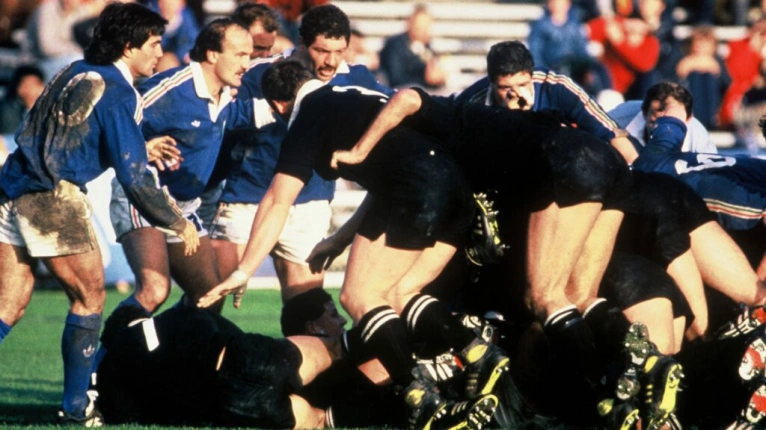The brief history of rugby union

Rugby is said to have been invented in 1823 when schoolboy William Webb Ellis picked up the ball during a game of football and decided to run with it.
Although there is little evidence to support this story, it has become the famous origin of this great sport. This folklore has become so prominent in the game we see today, that the world cup trophy is actually named after the young lad that supposedly set our game in motion.
William Webb Ellis himself went on to become an Anglican Clergyman after graduating from his days at Rugby school, the place where the sport got its name.
Despite the romantic thought that Webb Ellis had invented the game, it is thought that rugby had been played at Rugby School in some variety or other for around 200 years prior. Unofficial rule changes were brought in with each new cohort arriving at the school.
The first-ever official set of rules were written up in 1845 by three boys from the school. From here the game started to travel far and wide, with many universities and schools taking on the sport. This came about through word of mouth, and students from Rugby school arriving at these universities and passing on their game.
In 1871 the Rugby Football Union was formed, and shortly afterwards the game of rugby saw its first-ever international match played. Taking place in Edinburgh, Scotland beat England by two tries and a conversion to the English sides one try.
Scotland wore brown shirts with a thistle as their crests, whereas England wore all white, similar to what we see today. This match and the one that England won the year after was played over two 50-minute halves.
Through the size of the British Empire, many southern hemisphere sides began to experience the game in the mid/late 1800s, with the introduction of their own club sides.
It wasn’t until 1900 that rugby went truly international though. With the inclusion of rugby in the summer Olympics, the major southern hemisphere sides alongside the likes of France and Germany started to put together national teams.
The international competitions came to a halt in 1924 however, as rugby was dropped from the Olympics despite drawing some of the biggest crowds at the games.
In the meantime, the amateur game saw a huge rise in participation. The social side drew in as many supporters and players alike as the game itself. It was this attraction to the sport that saw many clubs start to pop up all around the world.
Club sides would start to compete on a more serious level, with domestic leagues being created and European competitions becoming a huge attraction to fans. It was thought of at the time that rugby was a sport to play in the winter while the more popular cricket was out of season.
It wasn’t until 1987 when the inaugural world cup competition was created, that rugby truly became a global game.

The introduction of the rugby world cup catapulted the game to the front of the sporting world. The inaugural competition was held in New Zealand and gave fans the first real experience of the global rugby competition that we know today.
The first-ever world cup saw 478,000 fans in attendance over the 32 matches played, which was fantastic for the time. But fast forward to the 2019 world cup in Japan, there were an incredible 1,698,528 supporters turning up to the 45 games on offer. This shows the incredible growth the game has had in just over 20 years.
A common trend since the introduction of the world cup however is the sheer dominance of the southern hemisphere nations. Out of the nine competitions there have been, just one has been won by a northern hemisphere side, England in 2003. Both New Zealand and South Africa lead the way with three world cups each.
1995 saw a dramatic change in the rugby landscape, with the game turning professional for the first time in its history. The European club competitions had previously been dominated by teams like Bath and Brive, but this change-up threw huge challenges into the mix for these clubs.
Professional coaches were now hired, changing the way teams trained and played. Players were suddenly looking for clubs that could pay them a suitable living, rather than just playing for their local sides.
Most recently there has been a crackdown on the amount of money players can be paid in the professional leagues, with the introduction of wage caps. Saracens and Leicester are just two names that have been penalised in the past for breaking the rules.
As the game travels more and more into the entertainment bracket rather than just sport, it is starting to appeal to those outside of the traditional ‘rugby family’. Big rugby events are creating a festival atmosphere, with bands playing and fairground attractions afterwards bringing together all walks of life.
A positive outlook for the game.






























































